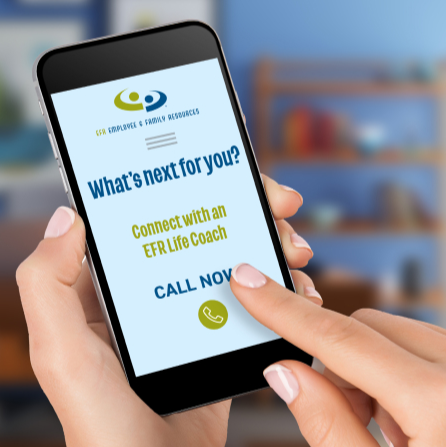Your productivity ebbs and flows. Find your flow by embracing the ebb.
As Sunday rolls around, do you feel a sense of unease looming over your head at the upcoming week’s responsibilities? Many of us feel compelled to hit the ground running on Monday morning, and hustle culture perpetuates this pressure. The popular ‘hustle culture’ trend glorifies working around the clock, sacrificing personal time and well-being to achieve goals. It’s fueled by the belief that hard work alone is the key to success, and individuals should push themselves to grind harder and longer than anyone else. This constant call to “rise and grind” may leave you feeling like you’re already behind on work before the weekend even ends.
As it turns out, the method and mindset behind hustle culture are counterproductive to achieving success. It contributes to burnout, mental health problems, and as a result- lowered productivity and happiness. There’s a much more effective way to tap into your productive flow, work with yourself, begin Mondays with less stress, and build momentum throughout the week.
Hustle culture grinds you down
The irony of hustle culture? It’s a counterproductive movement.
Hustle culture glamorizes the idea of the always-on entrepreneur, sleeping less, grinding more, and wearing burnout as a badge of honor. It pressures you to overachieve, to work at breakneck speeds in the never-ending pursuit of bettering yourself. The idea is to give your maximum effort 24/7 – because increasing your working hours and decreasing your hours for rest means you’ll be more productive. This idea may reap a short-term boost in productivity, but the long-term effects are detrimental to the end goal;
- Increased anxiety. Hustle culture breeds an all-or-nothing mindset- there is no room for failure in pursuit of perfectionism. So when you miss deadlines or make minor mistakes, it feels catastrophic.
- Inability to rest. A rise-and-grind mentality pushes the idea that you should minimize the time you relax because it’s not productive. With that mindset, you’ll feel guilty or weak for taking time for leisure and compounding stress over not doing enough.
- Apathy. You don’t take time to appreciate what you’ve accomplished when you’re always looking for the next big thing. As a result, nothing is good enough, and you’ll chase a goal that’s always just out of reach.
- Physical exhaustion and sickness. Rest is essential to your health. A meta-analysis published in 2019 concluded that working long hours increases the risk of heart disease, stress, depression, anxiety, poor sleep quality, alcohol abuse, and all-cause mortality.
- Work-life imbalance. When you prioritize your career success over everything else, you sacrifice meaningful relationships, fulfilling activities and events, and experiences that help you understand who you are.
- Low self-esteem. By tying your self-worth to an external factor like productivity, you’re placing yourself on a roller coaster ride of chasing temporary highs of achieving goals and plummeting to new lows when you inevitably make mistakes.
In the end, hustle culture pushes you to an unsustainable pace leading to burnout. It’s unreasonable to believe you or anyone has the bandwidth to withstand the ongoing pressure to perform at maximum capacity all of the time.
Hustle culture isn’t human
As humans, it seems obvious (but worth noting) that we don’t have a constant power source to plug into and consistently churn out tasks. Your energy levels ebb and flow from hour to hour with larger cycles over time. You may find periods where you’re highly motivated to go above and beyond; other times, you’re doing just enough to get by. Recognizing and tapping into your energy cycles can increase your productivity and happiness while reducing stress and friction.
Don’t dread the ebb
Understand that there are times for turning your nose to the grindstone and other times to rest and recover. Rest isn’t a reward for working hard; it’s an essential part of a larger cycle of productivity. Letting your brain work on tasks in the background allows it to cultivate ideas, process bigger decisions, and make connections you wouldn’t have seen if you were consciously trying. That’s why some of the best ideas happen while driving or in the shower!
Self-awareness is key.
Self-awareness is key to managing the ebb and flow of your energy and motivation. The point is to pay attention to how your energy levels ebb and flow on a typical day.
- Maybe you feel energized in the morning, ready to spring into action after the first cup of coffee. Then after lunch, you may have low energy and coast through the end of the day.
- Or maybe you’re not a morning person and require a second cup of coffee before you can blink sleep from your eyes. Your energy may slowly accelerate throughout the afternoon, and by 1 PM, you’re ready to conquer the world.
Tap into your energy cycles
Pinpoint when you feel most tired and energized, and plan your tasks around these patterns. You don’t need to allow rigid rules to dictate your schedule – if you’re a morning person, you don’t need to waste your finite energy slogging through your inbox first thing in the morning. Save the email sifting for the afternoon when you hit a lull. The idea is to throw strict rules out the window and remain flexible so you can adjust your tasks to serve your needs on an atypical day.
Struggling to start? Take these steps:
- Write up a list of your tasks, marking each by how much energy they require using low, medium, or high energy ratings.
- Take each category of tasks you’ve marked with low, medium, or high, and prioritize it based on importance and urgency.
- Block out sections of your day for each category based on the ebb and flow of your energy!
Meet bare-minimum Mondays
TikTok creator Marisa Jo Mayes coined the phrase Bare-Minimum Mondays as a response to the push of hustle culture. The idea is to rethink rigid work structures that box you in and burn you out. Bare-Minimum Mondays encourage you to refocus on caring for yourself by only doing the necessary tasks to fulfill your responsibilities – nothing more and nothing less. It’s a method of staving off the Sunday Scaries by easing yourself into the week, tending to your well-being with the idea to set yourself up for heavy lifting later in the week once you hit your stride.
It’s a way to recognize and honor your larger energy cycle, putting it into the context of a week rather than one day.
I had a “hustle culture” problem, a perfectionism problem… It was like a cycle of stress and burnout. I’d feel bad because I was so burned out I couldn’t do anything. So I’d make an insanely long to-do list for Mondays with the hope of overachieving my way back to feeling good about myself and how much I was getting done… The pressure I was putting on myself was paralyzing, and I realized something had to change.
The cure for a ‘case of the Mondays’
If Mondays aren’t your thing, rethink what’s realistic, given the ebb and flow of your energy. Rather than compiling a list of every task you must complete, pick a few of the top non-negotiables that will move the needle; deliberately focus your energy on your identified priorities. Doing so eases off the pressure while holding yourself accountable for your responsibilities.
Improve your efficiency by caring for your well-being
When you feel your best, you’ll work your best. Caring for your mental health and well-being is the best way to improve your efficiency. Working with your natural processes takes self-awareness rather than forcing an override. Resist the pressure to push yourself to the brink of exhaustion each week. You may yield short-term gains, but it’s unsustainable, and in the long run, you’ll be less productive, happy, and healthy. It’s a balancing act. When off-days happen, recognize them for what they are and accept them as okay. Strive to complete your essential responsibilities, caring for your well-being while still taking steps forward. You’ll be happier, healthier, and more productive in the long run!

Do you want to be more productive and less stressed? Connect with a Life Coach!
If you have Employee Assistance Program (EAP) benefits through EFR, you can schedule sessions with a life coach at no cost! Focus on your personal and professional development by building a toolbox of resources designed to help you reach your goals. Put a life coach on your team today!

